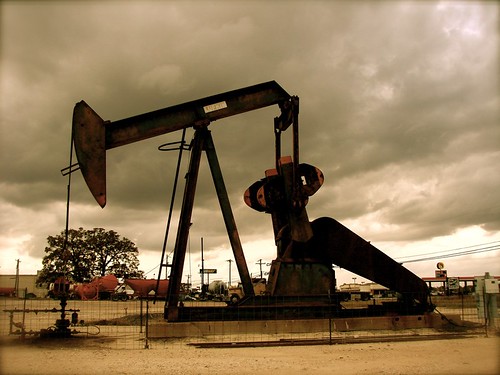 One of the great back stories of the ongoing economic crisis is the collapse in commodity prices, which occurred in the second half of 2008 after a record boom period lasting at least five years. The bursting of the bubble has produced clear winners and losers. Thanks to our fantastic contributors, zzzeitgeist has had excellent coverage of these repercussions. I thought I’d try to tie things together.
One of the great back stories of the ongoing economic crisis is the collapse in commodity prices, which occurred in the second half of 2008 after a record boom period lasting at least five years. The bursting of the bubble has produced clear winners and losers. Thanks to our fantastic contributors, zzzeitgeist has had excellent coverage of these repercussions. I thought I’d try to tie things together.The biggest winners are consumers, particularly first-world automobile drivers. In the last 7+ months, oil has fallen from $147/barrel to about $37/barrel now. Economists reckon that amounts to a ‘stimulus’ of more than $240 billion. Also, now that the world food crisis has largely subsided, developing-world consumers stand to benefit from cheaper food prices. This means a lot when you spend more than 50% of your budget on food.
The mining sector is obviously a huge loser. Mining is often a boom and bust industry, because it takes a long time to develop new mining projects. It’s hard to forecast future supply/demand fundamentals (remember when this seemed like a good idea?) and unfortunately they can change drastically and rapidly, which is exactly what has happened in the last year. As a result, a number of firms are closing mines, because prices are too low to justify operating costs. Mining firms often take on a lot debt out of necessity – digging mines ain’t cheap. But thanks to the financial crisis and the disappearance of cheap credit, heavily indebted companies are suddenly struggling to stay afloat. Case in point: Rio Tinto, the world’s second largest mining conglomerate. See Rory’s excellent treatment of Rio’s debt woes here.
Finally, commodity-dependent countries suffer perhaps the worst. When prices are high, resource-rich countries are suddenly flush with cash, which they can use to advance geopolitical aims, reward cronies, or invest in infrastructure, education and health to avoid the resource curse (don’t hold your breath). Falling commodity prices have scaled back these ambitions. See Dan’s analysis of Venezuela, Rory’s take on Russia, or this money quote about Iran.
In my mind, these are the biggest winners and losers, but this list is by no means exhaustive. Falling commodity prices also have an enormous effect on agricultural trade, international cooperation, foreign direct investment, Guinea, South Africa, Australia, several Latin American countries, etc. Who else am I missing?
(photo from jeff-o-matic’s photostream)





